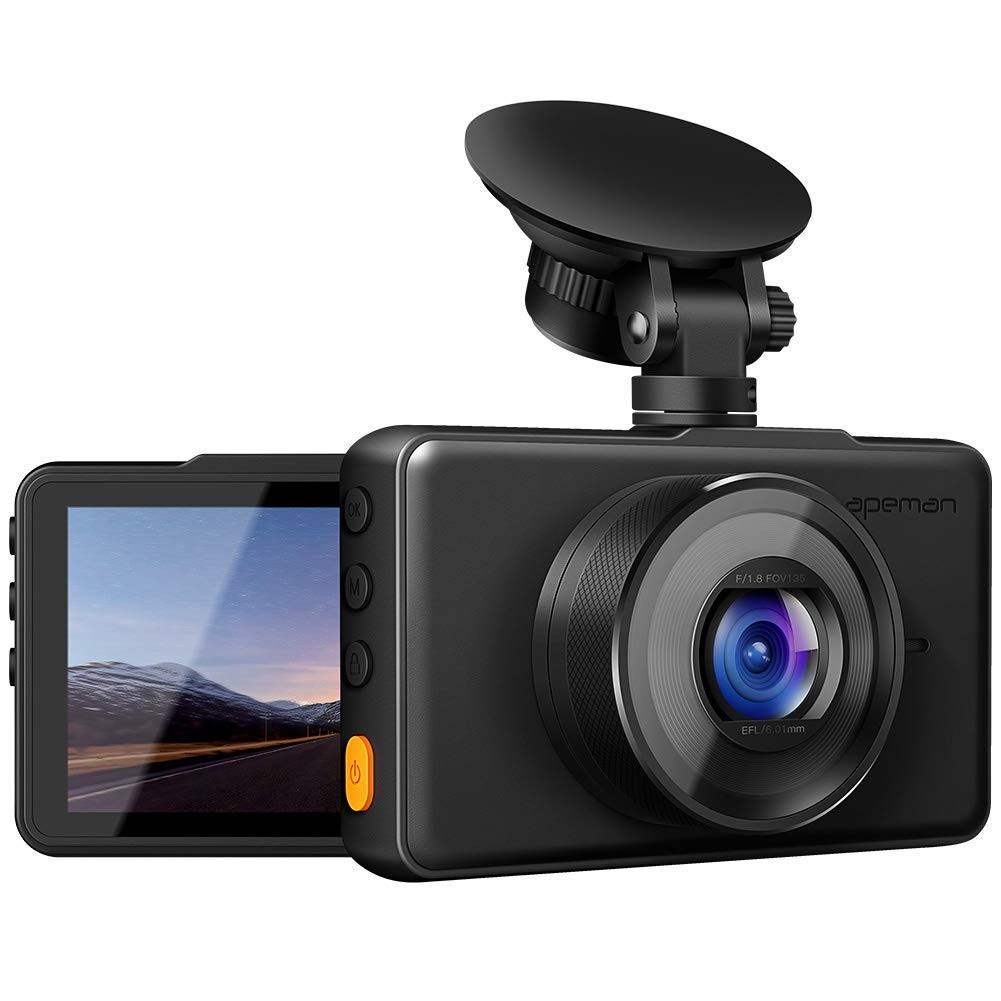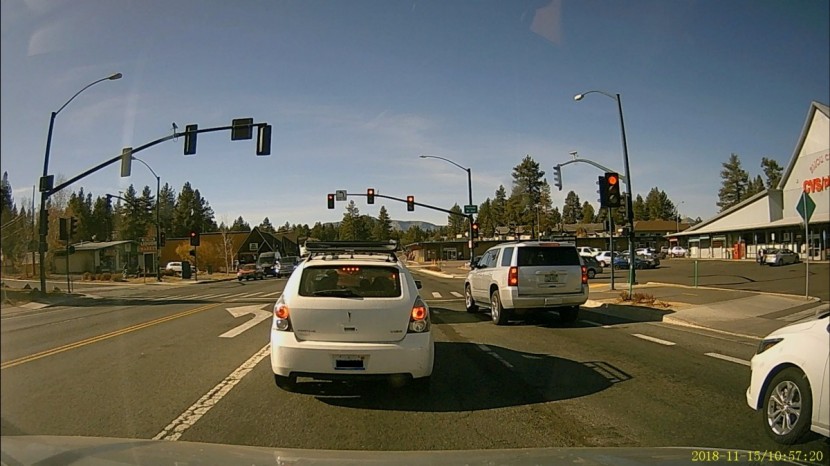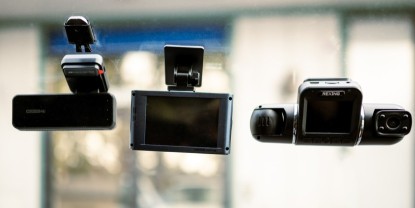APEMAN C450A Review
Our Verdict
Our Analysis and Test Results
The inexpensive APEMAN C450A has too many drawbacks when compared to similarly priced dash cams to earn a recommendation from us. While not a terrible camera, it failed to impress us in any of our tests, relegating it towards the bottom of our overall scoreboard
Video Quality
All of the footage we captured with the APEMAN in our testing had significant issues, whether it be clarity, color, or saturation. Accordingly, it earned one of the lowest scores in this metric.
During the day the APEMAN lends an odd, orangish tint to most footage, making it somewhat reminiscent of old movies from the 1950s. Despite having a slightly narrower field of view than many of our top picks at 150˚, we noticed more fisheye distortion with the APEMAN than with any other camera. Watching footage of a car going around a bend can be a bit disorienting. Finally, despite sporting 1080p resolution, this camera's footage looks much more block and pixelated than any of the other cameras we tested. These things combined make it fairly difficult to do things like read other cars' license plates. You almost have to be stopped behind a car at a stoplight to get a readable shot of a license plate with this cam.
All of these problems are only exacerbated at night, with the resolution seeming to get worse and the camera having lots of issues with the contrast of dark skies and bright street lights. We often found times where the camera would allow the image to be completely washed out by a bright light for a full 10 seconds or more before it finally switched its camera settings to somewhat rectify the issue. This resulted in many instances where even when parked right behind a car at a stoplight we couldn't make out its license plate.
Video Capture
The APEMAN offers a fairly basic video capture package. Like all of the models we selected for testing, it both automatically starts recording when you start your car and has multiple user reviewers vouching for the fact that its G-sensor is effective in detecting crashes and other driving mishaps. Once the APEMAN detects an event, it protects the current clip from being overwritten. You can set those clip lengths to 3, 5, or 10 minutes. That's a nice suite of options and is a bit better than many competitors that only have 3-minute settings. However, the APEMAN does not have any sort of built-in WiFi network, so you can't wirelessly send clips to your phone.
The APEMAN struggling to adjust to challenging lighting conditions.
Interface
The APEMAN has a very large 3-inch screen and 3 buttons on the side of the camera for navigating menus and changing settings. Overall, this setup leads to a fairly pleasant user experience when it comes to managing and viewing footage and changing all of the camera's presets.
Visual Footprint
The visual presence of the APEMAN is noticeable, but not aggressively so. Its design dictates that it be placed near the rearview mirror. This is more conspicuous than models that can hide in the corner of the dashboard, but we doubt most people would take issue with it. The rearview mirror also tends to block most of the rather large suction cup mount from view, which is a plus. Overall the APEMAN is unlikely to distract or annoy most drivers, but if you really can't stand any sort of visual impairment on your windshield, you may want to look at a slimmer model.
Value
While this is a very inexpensive dash cam, it falls short of the mark in many areas, so we don't consider it a high-value purchase.
Conclusion
The APEMAN C450A is enticingly cheap, but in most respects, you get what you pay for. There are certainly better budget dash cam options on the market.







